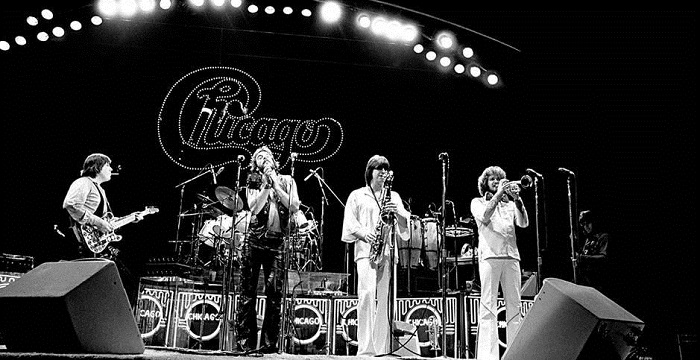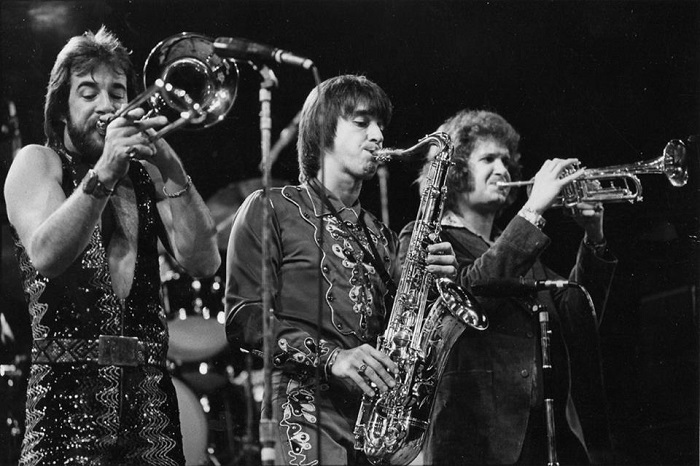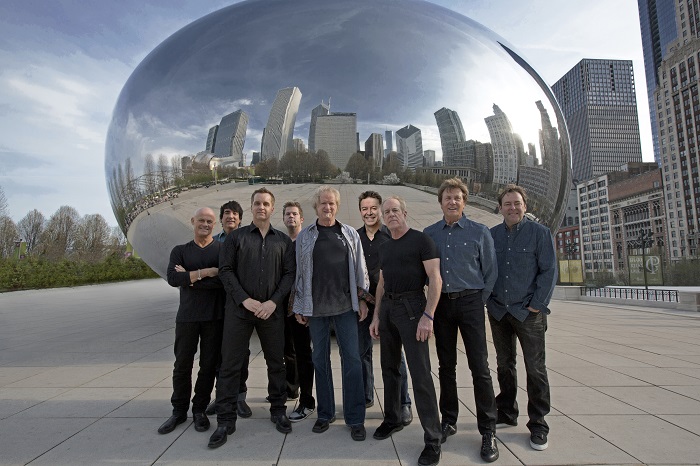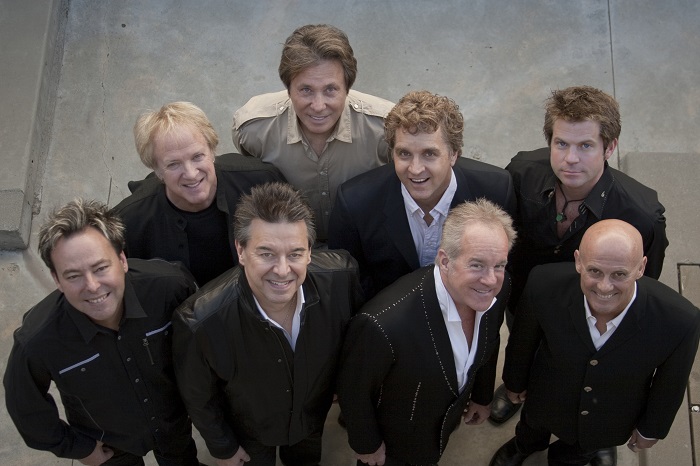
By Ira Kantor
[C]hicago–the big brass musical dynamo that turned the rock world upside down (and sideways) with its original combination of white soul, big band aesthetics and contemporary rock—will likely soon be inducted into the Rock and Roll Hall of Fame (vote and see the results of the public vote so far here). The obvious cliché that springs to mind upon hearing this news is “Baby, what a big surprise!” The actual response you will get from me is “About f—king time!”
Because, like the city the band is named after, Chicago is not merely an entity; it’s an institution. Among contemporaries, their timeless hits seem to be rivaled only by those of Elton John and Billy Joel in terms of Billboard supremacy. Like Coca-Cola (whose distinctive logo inspired the band’s), they keep churning out tasty product for the masses worthy of their assembly line.
Oh and did I mention that before they finally hit Number One with “If You Leave Me Now” in 1976, the band had 18 songs reach the Top 40. Across their entire career, most bands are lucky to have one hit that big, let alone 18. That fact alone warrants induction.
Across all their hits and all the tracks you might not remember so well, Chicago paints colorful pastiches of universal themes: nostalgia, relationships, fun times, solidarity, love, politics…the list goes on. They were the first American band to think like a symphonic orchestra well before the term “prog rock” entered public consciousness. Yes, they could enthrall listeners with four-minute blips like “25 or 6 to 4,” “Call on Me,” “Saturday in the Park” and “Feelin’ Stronger Every Day,” but how many bands of the era would take the time and imagination to conceptualize musical suites taking up whole sides of records. Play the multi-track “Hour in the Shower” from Chicago III and you’ll get what I mean.
No one musician made this band successful; the collective seven (and at times more) members drove Chicago to dominance. In an industry where egos are rampant, Chicago’s vocalists never had qualms about sharing microphones. Terry Kath would unleash his guttural growl simultaneously with psychedelic guitar licks. Robert Lamm’s baritone gave the band a poetic flair. While in the group, Peter Cetera was a golden bassist with golden pipes to match.
There’s a reason they gave the majority of their albums numbers instead of names – the whole was much greater than the individual parts.

In the Woodstrock era, only one other band had the gall to infuse horns with rock: Blood, Sweat and Tears. In an ironic twist of fate, Chicago’s manager, James William Guercio, produced Blood, Sweat and Tears’ eponymous album, which ultimately snagged a Grammy for “Album of the Year.” Chicago never took home this honor (they came close, receiving nominations for Chicago II and Chicago X) but they were always the better, livelier band.
Even after Kath’s tragic death in 1978, the band soldiered on, never letting their hurt show on vinyl. Their comeback single was dubbed “Alive Again,” and boy, were they ever! As the ’80s dawned, Chicago took flak for their polished sound. They were deemed too soft. Peter Cetera’s tenor was showing up on more hits. Then he was gone. But what matters most is the band kept making music. Vocalist/bassist Jason Scheff took the reins and took the band straight to Number One with “Look Away.” It’s now the 21st century and Chicago is still very much viable. Their latest studio release, 2014’s NOW, was a prime return to form–nearly five decades after forming!
Cities can never actually die; but they can be rebuilt. And that’s what this band did time and time again, decade after decade, no matter what obstacle they faced. That’s the epitome of a brotherhood and the definition of a legacy. The public now really knows what time it is. It’s time to give this musical institution its proper due.
∗ ∗ ∗









Be the first to comment!